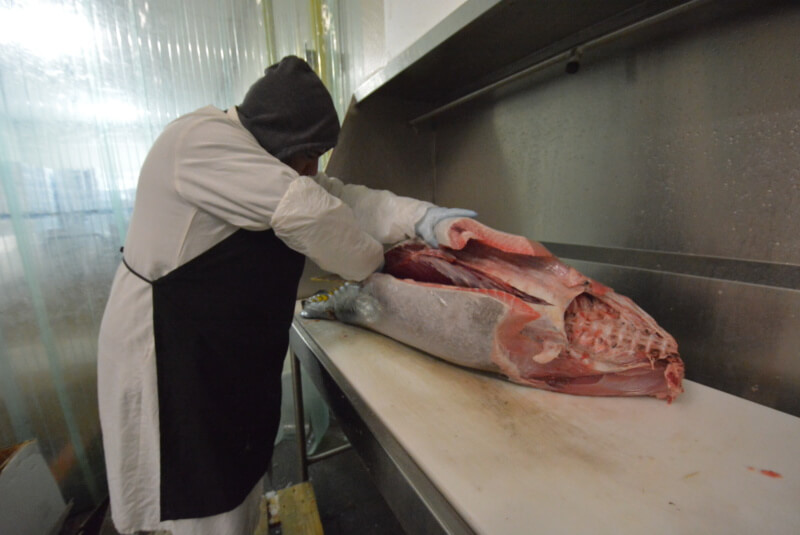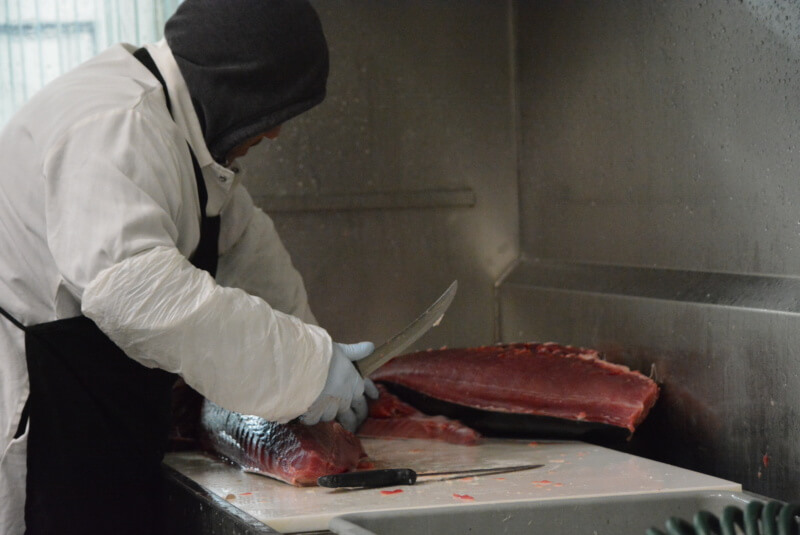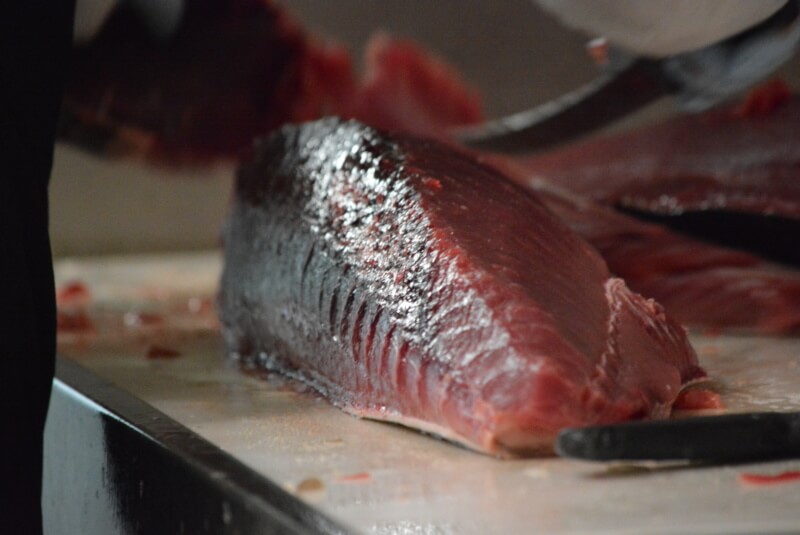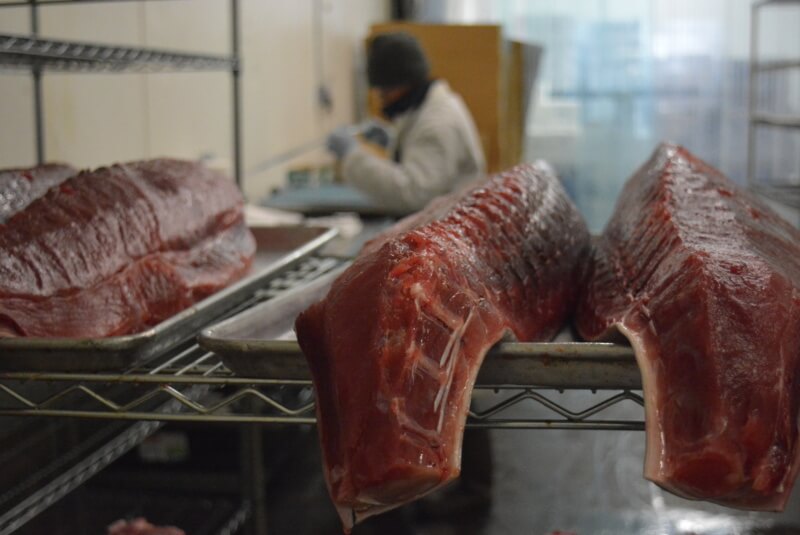


 It’s cold outside, but it’s colder in Asahi Foods’ refrigerated cutting room, where stacks of cardboard and Styrofoam boxes filled with giant fish await. The fish cutter is in early on a Saturday, wearing a white lab coat and heavy rubber gloves, various razor-sharp knives at the ready.
It’s cold outside, but it’s colder in Asahi Foods’ refrigerated cutting room, where stacks of cardboard and Styrofoam boxes filled with giant fish await. The fish cutter is in early on a Saturday, wearing a white lab coat and heavy rubber gloves, various razor-sharp knives at the ready.
Charlene Thai, a tiny woman in a similar lab coat, hovers nearby, watching over the daily cutting ritual that begins the flow of fresh-cut fish for sushi and sashimi to 200 restaurants in Colorado and surrounding states.
“If you see our tuna, it’s clean-cut, like a machine,” she says. “It’s not just the texture, but the clean cut that matters. If it’s not right, our customers can return the tuna and say ‘this is not the way I want it to be cut.'”
Thai is Asahi Foods’ general manager, and oversees two dozen employees, including the fish cutter as he tosses a headless 70-pound tuna onto an enormous cutting board and first trims off the collar and tail. He guts it from underneath, then hacks along spinal column to slice the fish all the way through. Then he deftly cuts the tuna neatly into filets about equal size, about 15 pounds each. They get gingerly arranged on trays and will be wrapped, labeled and delivered to sushi chefs up and down the Front Range.
Hapa Sushi owner Mark Van Grack was Thai’s first customer when Asahi Foods launched five years ago, although he didn’t realize it.
“But I do remember meeting her when she came in to take some of our fish business, and I really liked her right away,” he says. “I thought she was a lovely, bubbly woman. ”
Since that day, Asahi Foods has been “one of our biggest suppliers.”
Van Grack credits Thai’s commitment to customer service for Hapa’s bond with Asahi Foods.
“One of the reasons we’ve had such a good relationship is that she has the same mentality about her customers that we have for our customers,” he says. “We want everything to be right 100 percent of the time, which is impossible, but it’s what we do when something’s not 100 percent that’s what’s important. Charlene has the attitude of ‘we’ll do whatever it takes to make it right.’ ”
Tokio chef Miki Hashimoto, who serves sushi and ramen from his restaurant in the shadow of Coors Field, has known Thai for years and says he buys from her because he respects her. “She’s loyal and has a wonderful personality,” he says. “I trust her.”
That’s why it’s important to Thai to make sure the fish is cut cleanly — just right for her customers.
Continue reading










